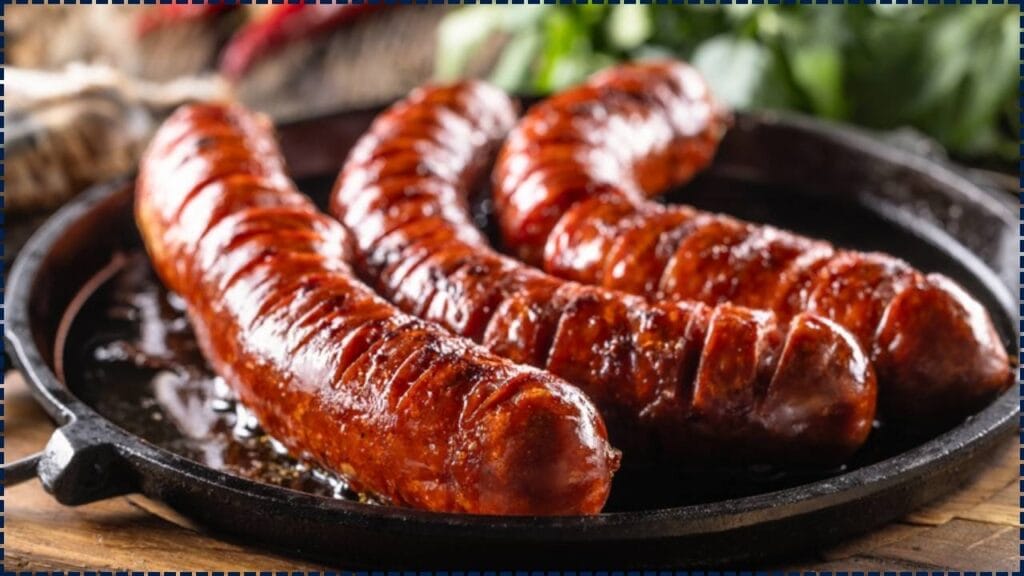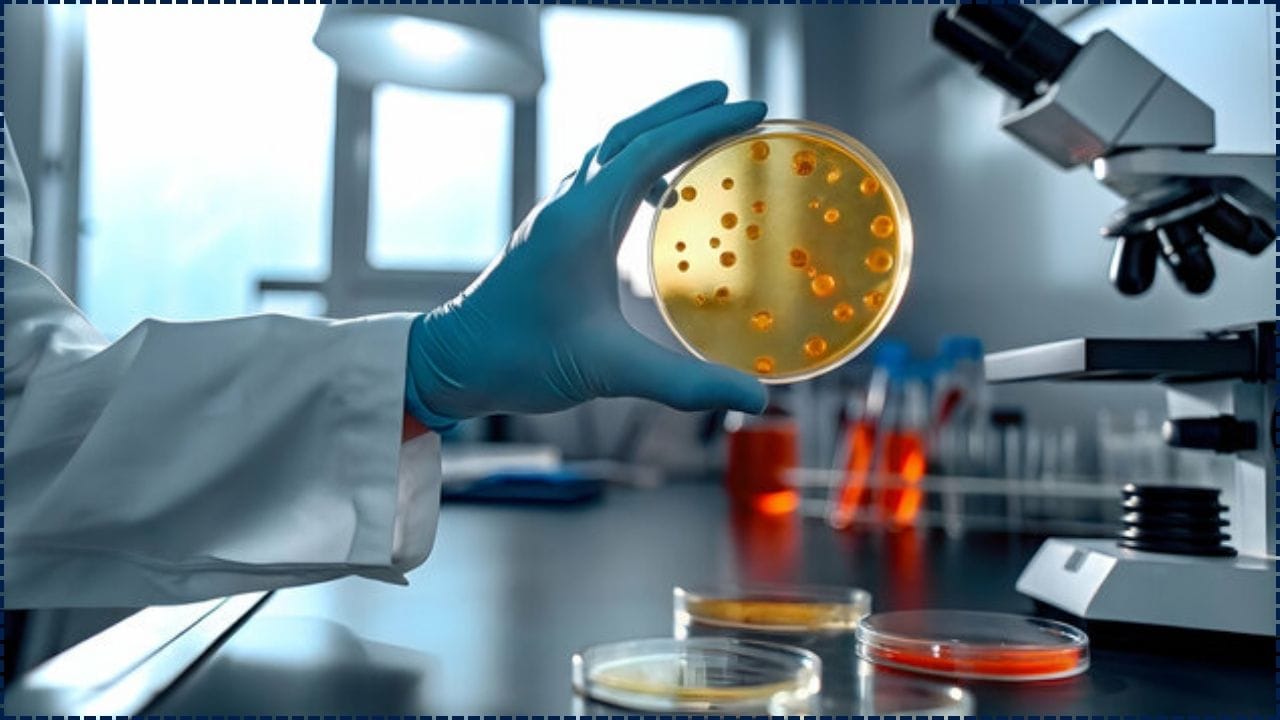In a concerning update, a trusted sausage brand has urgently recalled thousands of pounds of its product due to safety worries. The recall involves Johnsonville Cheddar Bratwurst, sold nationwide, which may contain hard plastic pieces, posing a risk to consumers. This article explains the recall simply, shares steps to take if you’ve bought the product, and offers guidance on staying informed to keep you and your loved ones safe and cared for.

Recalls of food products are never something consumers want to hear about, but they are necessary when safety is at stake. The Johnsonville recall is a prime example of how food safety issues can arise unexpectedly and how important it is for consumers to stay informed and take action when such recalls occur. If you’re a fan of bratwurst, it’s crucial to check your freezer and pantry for the affected sausages to avoid any potential health risks.
Popular Sausage Recalled Nationwide
| Topic | Details |
|---|---|
| Brand Affected | Johnsonville |
| Product Recalled | Cheddar Bratwurst |
| Contamination Risk | Hard plastic pieces |
| Quantity Recalled | Approximately 22,672 pounds |
| Production Date | February 5, 2025 |
| Best By Dates | May 17, 2025, and May 18, 2025 |
| Establishment Number | P-32009 |
| States Affected | Georgia, Indiana, Kansas, Kentucky, Michigan, Minnesota, Ohio, Tennessee, Virginia, Wisconsin |
| Action Required | Do not consume; dispose of or return the product for a refund |
| Official Source | FSIS Recall Notice |
Food recalls, while worrisome, play a vital role in keeping us safe and healthy. The Johnsonville Cheddar Bratwurst recall reminds us to stay attentive to the food we eat. If you’ve bought the recalled sausages, act promptly—check your product, return it to the store, or dispose of it safely. By staying informed and acting with care, you can protect yourself, your family, and your community from harm, ensuring peace of mind for all.

What Happened with the Johnsonville Recall?
Johnsonville, one of the most recognized names in the sausage business, has recalled approximately 22,672 pounds of Cheddar Bratwurst due to contamination concerns. The issue? The sausages were found to contain hard plastic pieces, a dangerous foreign object that could pose serious health risks if ingested. The recall was initiated after the company received several reports of consumers finding these plastic pieces in the sausages. While no injuries have been reported, consuming these products could lead to choking or injuries to the mouth, throat, or digestive tract.
The Affected Products
The sausages affected by the recall were produced on February 5, 2025, and have best by dates of May 17, 2025, and May 18, 2025. The product in question is Cheddar Bratwurst, a popular item known for its blend of cheddar cheese and savory bratwurst. It was sold in various stores across the U.S. under the Johnsonville brand.
If you’ve purchased Johnsonville Cheddar Bratwurst between February and March 2025, especially in states like Georgia, Indiana, Kansas, Kentucky, Michigan, Minnesota, Ohio, Tennessee, Virginia, and Wisconsin, you might have bought one of the affected packages. The recall affects sausages that were marked with the establishment number P-32009 on the packaging, a vital detail to check for when determining if your product is impacted.
What Should You Do If You Have the Affected Product?
- Check Your Product: The first thing you need to do is check any Johnsonville Cheddar Bratwurst sausages you have at home. Look for the following details:
- Establishment Number: P-32009 (found on the packaging)
- Best By Dates: May 17, 2025, and May 18, 2025
- Plastic Pieces: If you notice any hard plastic pieces in the product, do not consume it.
- Do Not Consume the Product: If your product matches the details above, do not eat it. Even if the sausages seem perfectly fine, the risk of contamination is significant, and it’s better to be safe than sorry.
- Return or Dispose of the Product:
- Return to the Store: If you bought the sausages at a retail location, you can return them for a refund. Most retailers are offering full refunds for the affected products.
- Dispose of the Product: If returning the product is not possible, dispose of the sausages properly. Be sure to throw them away in a manner where they cannot be accidentally consumed by pets or animals.
- Report Any Health Issues: If you have already consumed the affected sausages and are feeling unwell, you should seek medical attention immediately. Symptoms may include choking, mouth or throat injuries, or digestive issues. If you experience any of these symptoms after consuming the product, it’s critical to reach out to your healthcare provider.
- Contact Johnsonville for More Information: For more information or if you have specific concerns, you can contact Johnsonville directly. They have provided a customer service line to assist consumers affected by the recall. The full contact information can be found on the official recall notice.
Why Do Food Recalls Happen?
Food recalls are not uncommon and are usually prompted by the discovery of foreign objects, contamination, or potential health risks that could arise from consuming a product. In this case, the recall was initiated after Johnsonville was made aware of hard plastic pieces found in some sausages.
Common Reasons for Food Recalls
- Foreign Objects: This is one of the most common causes for food recalls. It can include things like plastic, metal, or glass that accidentally end up in food during production or packaging.
- Bacterial Contamination: Contamination from harmful bacteria like Salmonella, E. coli, and Listeria has caused several food recalls over the years. These bacteria can lead to severe food poisoning.
- Undeclared Allergens: Sometimes, food products contain allergens that are not listed on the label, leading to allergic reactions for sensitive individuals.
- Packaging Errors: Sometimes, food products get mixed up, and the wrong product ends up in the wrong packaging, resulting in a recall.
Example of a Past Recall
A notable example from the recent past includes the Boar’s Head Deli Meat recall in 2024, where listeria contamination caused a major health scare. As with the Johnsonville recall, quick action by the company and authorities helped mitigate the risks. (en.wikipedia.org)
How Food Companies Handle Recalls
When food contamination is discovered, the manufacturer typically takes immediate steps to issue a recall. Here’s a breakdown of how the process works:
- Identification of the Issue: The food company typically learns about a contamination problem through consumer complaints, routine testing, or regulatory agencies like the USDA. In Johnsonville’s case, the company received reports from consumers who found plastic pieces in the bratwurst.
- Issuing a Recall: The company works with federal agencies like the U.S. Department of Agriculture (USDA) and the Food and Drug Administration (FDA) to announce the recall. The details of the recall are published through official channels, including press releases and government websites.
- Investigating the Source of Contamination: The manufacturer investigates how the contamination occurred to prevent future issues. This involves reviewing the supply chain, production processes, and packaging systems.
- Compensating Affected Consumers: Companies usually offer refunds or replacements to customers affected by the recall. In some cases, like with Johnsonville, retailers also work with the manufacturer to facilitate returns.
- Preventive Measures: After a recall, companies typically implement additional quality control and safety measures to prevent similar issues in the future. This can include updating equipment, revising processes, or improving packaging protocols.
Consumer Rights During a Recall
Consumers are entitled to certain rights during a recall. These include:
- Refund or Replacement: If you have purchased a product that is being recalled, you are generally entitled to a refund or a replacement of the product.
- Right to Health and Safety: Consumers have the right to be informed of potential dangers associated with a product and should receive clear instructions on how to handle a recall.
- Legal Recourse: If you suffer from an injury or illness as a result of consuming a contaminated product, you may be entitled to compensation. Legal action can be taken against the company that produced the unsafe food.
Related Links
New TSA Ban in Effect: Travelers Shocked as This Common Item Is Now a Security Risk
Breyers Issues Ice Cream Recall Over Chocolate Truffle Contamination Risk
Popular Sausage Recalled Nationwide Stay Informed on Food Recalls
While food recalls can happen at any time, staying informed is your best defense. Here’s how you can keep up to date with food recalls:
1. Regularly Check Official Websites
- The U.S. Department of Agriculture (USDA) maintains a Recalls & Public Health Alerts page. This page provides up-to-date information on any food product recalls, including important details like what products are affected, why the recall was issued, and what you should do.
2. Sign Up for Alerts
- Many companies, including Johnsonville, offer alerts or notifications to customers about recalls on their websites. Sign up for these to stay on top of the latest safety information.
3. Follow the News
- Major recalls often make headlines. Keeping an eye on news outlets, especially those that specialize in health and safety, can help you stay informed in real-time.
4. Be Proactive
- Be mindful when purchasing food products, especially packaged goods. Always check expiration dates, and when in doubt, review the brand’s history of recalls to assess their commitment to safety.
FAQs
Q1: How do I know if my sausage is affected by the recall?
A1: Check for the establishment number P-32009 and the best-by dates of May 17 or May 18, 2025 on the packaging. If these match, your product is recalled.
Q2: What should I do if I’ve already consumed the affected product?
A2: If you’ve eaten the recalled sausage and are experiencing symptoms like choking or digestive issues, seek medical help immediately.
Q3: Where can I find more information about food recalls?
A3: For up-to-date information, visit the USDA’s Recalls & Public Health Alerts page.
Q4: Is this recall only for Cheddar Bratwurst sausages?
A4: Yes, this recall specifically affects Johnsonville Cheddar Bratwurst sausages with production dates of February 5, 2025.
Q5: How can I return my recalled sausages?
A5: Return the product to the store where you purchased it for a full refund.








